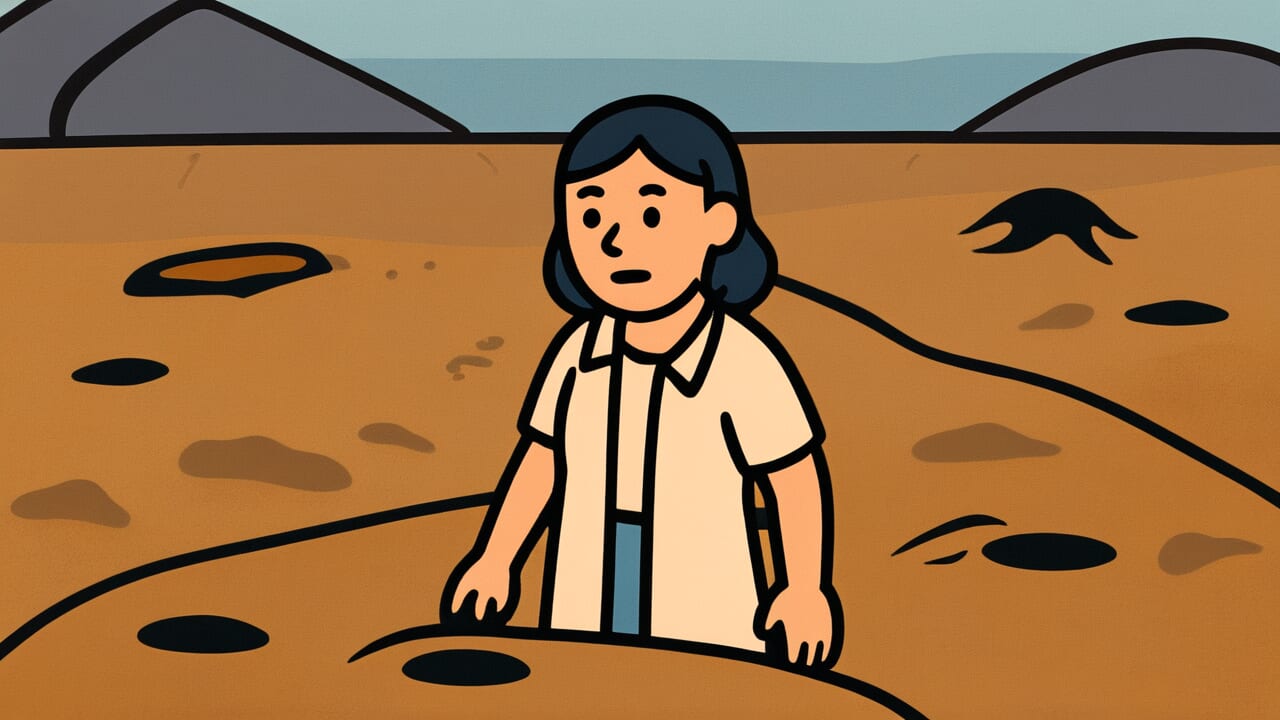How to Read “No one has ever died from dirt”
Aka de shinda mono wa nai
Meaning of “No one has ever died from dirt”
“No one has ever died from dirt” means that being a little dirty won’t kill you. It warns against worrying too much about cleanliness. Instead, you should focus on more important things.
This saying is used when someone worries too much about small things. They lose sight of what really matters.
For example, imagine someone who can’t finish important work because they worry about tiny details. Or someone who can’t take action because they want everything to be perfect.
In these cases, people use this saying to encourage them. It means “don’t worry about such small things.”
Today, we care a lot about cleanliness and hygiene. But the main idea of this saying still matters.
It teaches us to understand what’s truly important. Don’t get stuck on tiny things. This wisdom still helps us live better today.
Origin and Etymology
There are no clear written records about where this saying came from. But people think it started from everyday life during the Edo period.
Back then, Japanese people didn’t take baths every day like we do now. Public bathhouses existed, but regular people couldn’t go often.
Many people only washed themselves once every few days or once a week. In farming villages, water was very cold in winter. So people bathed even less often.
In this environment, people learned from experience. Being a little dirty wouldn’t kill them. In fact, washing in cold winter weather could make you sick. That was more dangerous.
The word “aka” (dirt) represents all kinds of body dirt. This saying contains a warning against worrying too much about cleanliness.
It tells us to focus on more important things. It asks us to think about what really matters in life. This question lies at the heart of the saying.
Usage Examples
- Don’t be nervous when your child gets a little dirty. No one has ever died from dirt, so let them play freely.
- Instead of worrying for days about a perfect presentation, just submit it. No one has ever died from dirt, right?
Universal Wisdom
“No one has ever died from dirt” contains deep understanding about life priorities.
Everyone tends to get caught up in small problems. We want things to be perfect. We worry about what others think. We fear making mistakes.
These feelings can sometimes freeze us in place. But think about it carefully. Most of these things aren’t really life-or-death matters.
This saying has been passed down for so long for a reason. Humans naturally think unimportant things are super important.
We demand perfection in tiny details. We waste precious time and energy on them. Our ancestors understood this human weakness.
What truly matters is living, moving forward, and trying new things. It’s not about perfect details. It’s about whether you’re making progress overall.
This saying acts like a compass. It helps us remember what life is really about. It gives us courage to let go of perfectionism and live boldly.
When AI Hears This
The human brain is bad at understanding probability. It can’t tell the difference between “1 in a million” and “1 in ten thousand.” Both feel like “basically zero.”
This saying points out exactly this thinking error. The chance of dying from dirt is statistically almost zero. Yet people fear it.
Meanwhile, smoking or not exercising raises death risk by several percent. But people think “it’ll probably be fine.”
This imbalance has a reason. Through evolution, human brains learned to react quickly to “visible threats.” You can see poisonous snakes or rotten food with your eyes and nose.
But you can’t sense cumulative risks like high blood pressure or hardened arteries. The brain judges “is this dangerous right now?” It’s bad at calculating “how much does this raise my death rate in 30 years?”
Today, the antibacterial products market is worth billions of dollars. Yet one in three Japanese people die from lifestyle diseases.
If we really want to protect our lives, we need to compare probabilities calmly. This saying has been teaching the importance of thinking with numbers, not feelings, for hundreds of years.
Lessons for Today
This saying teaches modern people the courage to escape the trap of perfectionism.
We now live surrounded by more “correct ways” than ever before. On social media, everyone shows perfect lives. At work, perfection is demanded in every detail.
There are countless “shoulds” about health and beauty. But if you try to do everything perfectly, your mind gets exhausted. You can’t reach what you really want to do.
What matters is having the ability to see what’s truly important and what isn’t. Even if your room is a bit messy or your document has small mistakes, your life won’t end.
In fact, by accepting small imperfections, you save energy for big challenges.
Moving forward with some imperfection leads to a much richer life than being too perfect to take even one step.
This saying gives you permission. It says “you can live more relaxed and more boldly.”



Comments